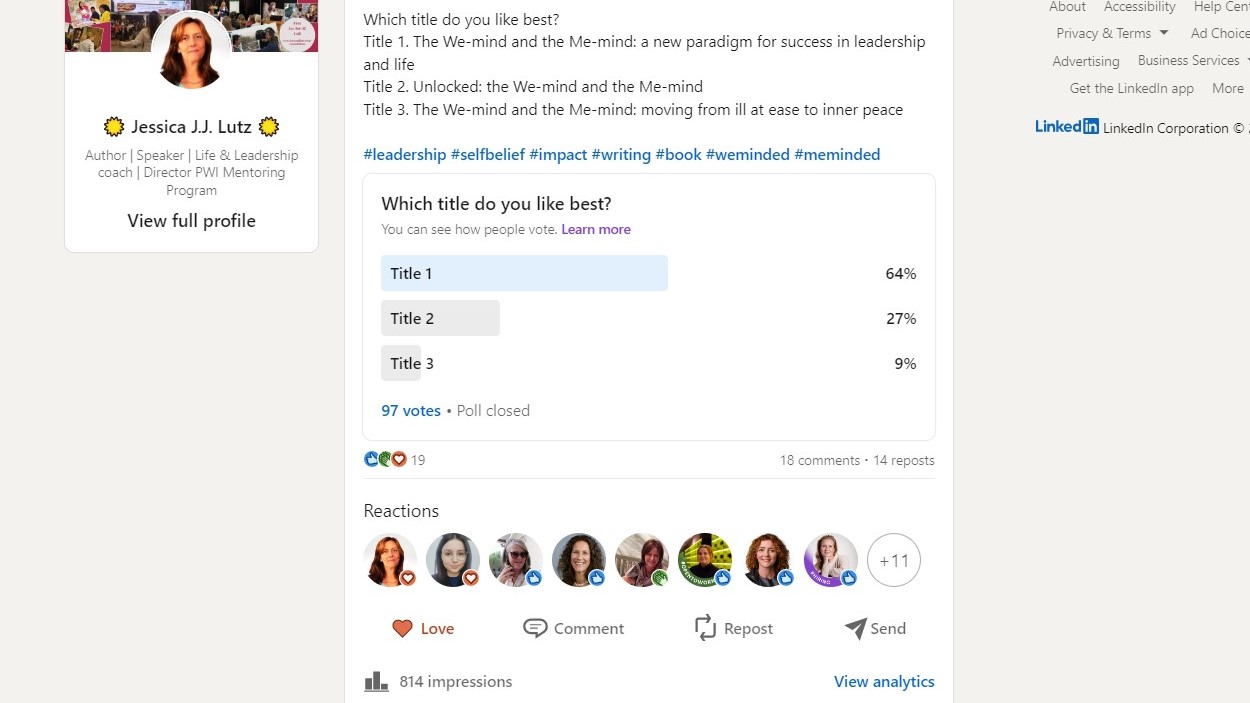The poll to choose a title for my book on the We-mind and the Me-mind is closed. Several people asked an important question: If this book is meant for women, why wasn’t that part of the titles to choose from?
Before I answer that, I’d like to say a deep-felt thank you to all who contributed. I am delighted by the clarity of which title leads. Based on all the feedback I received separately, I will soon reveal the final title.
For women or not?
My ‘why’ for writing the book was indeed the fact that women are still underrepresented in leadership despite the massive investments being made to change that situation.
Apart from the infamous glass ceiling that still exists in places, I point at the fact that so many highly driven people – not only, but mainly women – feel held back by an invisible force. I’ve felt it too, so I know what I’m talking about. But I also know that quite a few men feel this form of self-sabotage as well. That was one reason to avoid ‘women’ in the title. ![]()
The main reason, however, is this: due to all my research, I’ve come to the conclusion that labelling it as a gender issue is part of the problem. The real issue is that our world, at least the professional world, is shaped according to the values of the Me-mind.
My definition of the ultimate Me-mind is prioritising one’s own well-being even if that is at the expense of others. The We-mind prioritises the well-being of the group, even if that is at one’s own expense.
Indeed, more men tend to be Me-minded, and more women We-minded, but we all have both. Just one of the two minds leads, the other follows. The degree to how We- or Me-minded we are is unique to each one of us.
Apart from a deep dive into what this means for our personalities and what we struggle with, the essential issue I address in this book is the fact that we value the characteristics of the Me-mind, and take those of the We-mind for granted.
If we want more women in leadership, we need to acknowledge that most of them are We-minded and that they come with a different set of values and strategies from the Me-minded norm. As it is now, We-minded people constantly hear the message that they don’t fit in, or that how they are is not good enough. This undermines their self-esteem, but also their chances to deploy their true strengths.
That’s why this book is not exclusively for women, but for all who want a fairer world in which everyone gets to contribute their unique potential.

